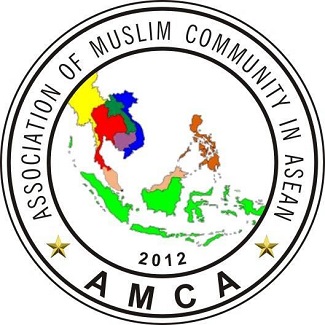The Role of Pesantren Wahdah Islamiyah in Providing Character Education Programs at Insan Rabbani Integrated Islamic Elementary School, Malili, Indonesia
DOI:
https://doi.org/10.18196/jiee.v3i2.97Keywords:
Pesantren, Moral development, Character education, Wahdah Islamiyah, Formal educationAbstract
This study aims to examine the role of Pesantren Wahdah Islamiyah Luwu Timur in providing and implementing character-building programs at the Integrated Islamic Elementary School (SDIT) Insan Rabbani Malili. The research focuses primarily on the forms of collaboration between the pesantren and the school, the types of moral development programs implemented, and their impact on students' character formation. A qualitative research approach was employed, utilizing data collection techniques such as observation, in-depth interviews, and documentation. The findings indicated that Pesantren Wahdah Islamiyah played a strategic role as an active partner in moral education, particularly in curriculum development, teaching personnel, and regular religious activities such as halaqah (study circles), mentoring, and the cultivation of daily worship habits. These programs have positively contributed to developing students’ character, especially in discipline, responsibility, and social ethics. This study addresses a gap in the literature where limited research explores the direct, structured collaboration between pesantren and formal Islamic schools at the elementary level. Its novelty highlights the pesantren’s multi-dimensional role—conceptual, operational, and implementational—in shaping character education within a formal school context, offering a practical model for integrated Islamic education.
Downloads
References
Aldjufri, S. (2011). Wahdah Islamiyah di Gorontalo. Kementrian Agama RI.
Bahri, S. (2022). Pendidikan Akhlak Anak dalam Perspektif Imam Al-Ghazali. At-Tadzkir: Islamic Education Journal, 1(1), 23–41. https://doi.org/10.59373/attadzkir.v1i1.6
Cresswel, J. (2013). Research Design: Qualitative, Quantitative, and Mixed Methods Approaches. SAGE Publications.
Girsang, A. P. L., Agustina, R., Sulistyowati, N. P., Sulistyowati, R., & Nugroho, S. W. (2024). Statistik Pendidikan.
Hairiyah, S., & Arifin, S. (2020). Peran Keluarga Dalam Menumbuhkan Motivasi Belajar Anak Sejak Dini. Jurnal Kariman, 8(02), 279–294. https://doi.org/10.52185/kariman.v8i02.150
Hasyim, F. (2016). Islamic education with multicultural insight an attempt of learning unity in diversity. Global Journal Al-Thaqafah, 6(2), 47–58.
Jasmani. (2020). Model Kemitraan Sekolah Dengan Pondok Pesantren Dalam Pengembangan Lembaga Pendidikan Islam. Leaderia: Jurnal Manajemen Pendidikan Islam, 1(2), 76–84.
Jurdi, S. (2007). Sejarah Wahdah Islamiyah Sebuah Geliat Ormas di Era Transisi. Kreasi Wacana.
Jurdi, S. (2013). Gerakan Sosial Islam Indonesia: Peraturan Wahdah Islamiyah dan Gerakan Transnasional. Alauddin University Press.
Moleong, L. J. (2019). Metodologi Penelitian Kualitatif (Edisi Revisi). PT. Remaja Rosda Karya. https://doi.org/10.1016/j.carbpol.2013.02.055
Murtadlo, M. (2021). Indeks Karakter Siswa Menurun: Refleksi Pembelajaran Masa Pandemi. Badan Litbang Dan Diklat Kementerian Agama RI. https://balitbangdiklat.kemenag.go.id/berita/indeks-karakter-siswa-menurun-refleksi-pembelajaran-masa-pandemi?utm_source=chatgpt.com
Mu’ti, A. (2025). 7 Kebiasaan Anak Indonesia Hebat Menuju Indonesia Emas. Direktorat Jenderal Pendidikan Anak Usia Dini, Pendidikan Dasar, Dan Pendidikan Menengah. https://pdm.dikdasmen.go.id/media-berita/7-kebiasaan-anak-indonesia-hebat-menuju-indonesia-emas
Nasution, S. (2023). Metode Pembinaan Pendidikan Akhlak Tingkat Sekolah Dasar. Journal on Education, 5(2), 5138–5142. https://doi.org/10.31004/joe.v5i2.1252
Nazaruddin. (2024). Pembinaan Akhlak Siswa Sekolah Dasar di Era Digital. IHSAN: Jurnal Pendidikan Islam, 2(2), 213–226. https://doi.org/10.61104/ihsan.v2i2.169
Saguni, Q. (2013). Selayang Pandang Wahdah Islamiyah. DPP Wahdah Islamiyah.
Sholahuddin, A. N., & Khoir, M. A. (2024). Pembinaan Akhlak Terpuji Melalui Program Mabit Dengan Metode Keteladanan. Didaktika: Jurnal Kependidikan Vol.13, 13(1), 529–536.
Syarif. (2020). Building plurality and unity for various religions in the digital era: Establishing islamic values for Indonesian students. Journal of Social Studies Education Research, 11(2), 111–119.
Tiliouine, H. (2014). Islamic education and youth well-being in muslim countries, with a specific reference to algeria. In Handbook of Child Well-Being: Theories, Methods and Policies in Global Perspective. https://doi.org/10.1007/978-90-481-9063-8_181
Waziana, W., Saputra, R. H., & Sinthiya, I. A. P. A. (2021). Implementation of Moral Education in Schools To Face the Development of Science and Technology As a Fortress of Demoralization. JLCEdu (Journal of Learning and Character Education), 1(2), 59–68. https://doi.org/10.56327/jlcedu.v1i2.18
Downloads
Published
How to Cite
Issue
Section
License
Copyright (c) 2025 Journal of Islamic Education and Ethics

This work is licensed under a Creative Commons Attribution-ShareAlike 4.0 International License.





